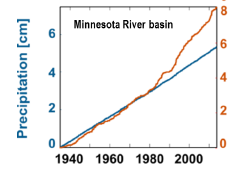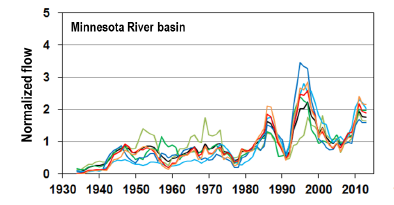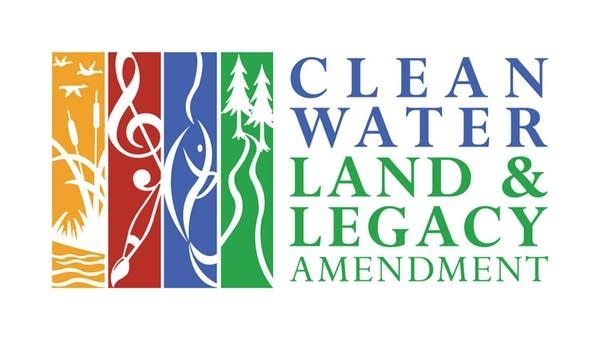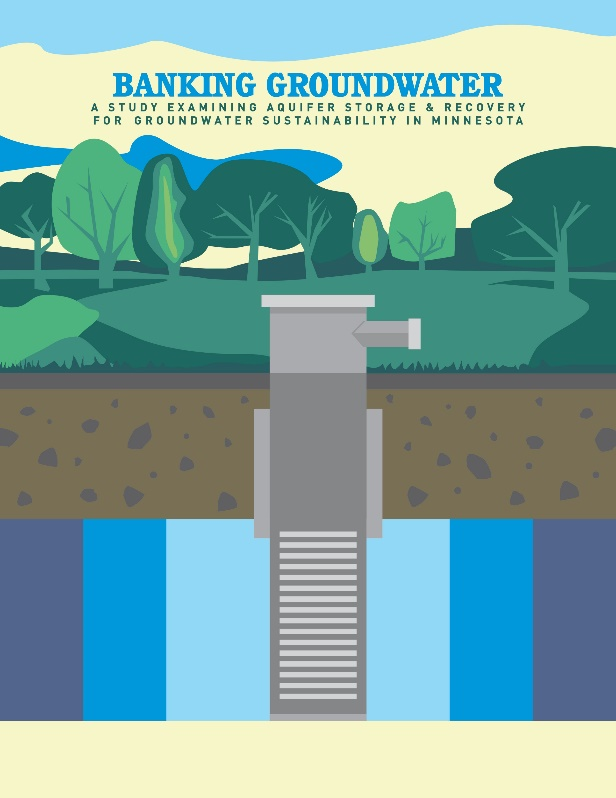The Freshwater legislative focus is on two major water issues, one surface water and one groundwater, and one funding issue, that Legacy Funds are spent in accordance with the Clean Water Council’s recommendations. Our ongoing relationship with Conservation Strategies is critical to this work. They work to get the bills heard and schedule our meetings with legislators so that we can answer questions ahead of our testimony at hearings, all while negotiating this new virtual world at the Capitol.
Minnesota River Basin Water Storage Program
The combination of more annual precipitation, more high intensity rain events, and crops that need drainage to thrive but send less moisture to the atmosphere are adding up to increases in river flow. There is simply more water being delivered to rivers over a shorter period of time and this has led to erosion of cropland and too much sediment in the river.


A solution to this problem is to temporarily store water on the land. This is widely accepted as an effective tool to reduce river flow, bank erosion, and sediment and nutrients being delivered to surface water.
Freshwater supports and has testified on behalf of two bills, one that establishes a water storage program within BWSR and guidelines for financial incentives to landowners for the Minnesota River watershed and one that establishes a statewide program that we amended to prioritize the Minnesota River. These state-funded programs can be used to leverage federal funds and could be key to helping willing landowners participate in conservation efforts and adapt to increased rain.
The statewide bill was included in Governor Walz’s FY 2022-2023 budget for BWSR, which includes $1.5 million each year for a water storage and treatment program as part of his priority of addressing climatic issues through mitigation and resiliency.
Groundwater Recharge
You may recall that in 2019, LCCMR funded a groundwater recharge study, Banking Groundwater led by Freshwater and the University of Minnesota to understand where and how Aquifer Storage and Recovery (ASR) might be useful to enhance groundwater.
Freshwater has been working with key policy makers to move forward with recommendations from that recently completed report. These recommendations include provisions for the DNR and MDH to remove policy barriers to using aquifer storage and recovery as a tool to solve complex groundwater problems and completing a centralized aquifer property database. ASR remains a tool to be used after other conservation and reuse efforts are exhausted. Complications with the shortened committee time this session have us focusing on the database and laying groundwork for the other report recommendations next year.
Clean Water Land and Legacy Amendment Funds

In 2008, Minnesotan’s voted in support of the Clean Water, Land and Legacy Amendment to the Minnesota Constitution to protect water, habitat, and the environment. The Legacy Amendment increased the state sales tax by 3/8’s of 1% from July 1, 2009 until 2034. A 33% share of the sales tax revenue from the Legacy Amendment goes to the Clean Water Fund. These funds are vital as Minnesota continues the work of protecting, enhancing, and restoring waters across the state. These dollars are expressly meant to add to—not replace—existing funding. Freshwater has worked with the Clean Water Council over the years, and more intensively recently, to reform the processes for selecting the uses for the Fund to maximize return on investment.
Freshwater continues to support the Clean Water Council’s recommendations for use of Clean Water Fund dollars, and supports Governor Walz for following these recommendations in his FY 2022-2023 budget. These funds are constitutionally dedicated funds to supplement existing state programs, not to supplant them in the case of a potential budget deficit.
– Carrie Jennings, research and policy director
Earth Day Conversation
Check out this Earth Day event from the League of Women Voters of Minnesota, where longtime Freshwater supporter Darby Nelson and his “paddling companion for life” Geri Nelson talked about writing “For Love of a River: The Minnesota” and “For Love of Lakes.”
In the discussion that followed the Nelsons’ talk, hear how panelists translate science into policy to protect Minnesota water quality.
